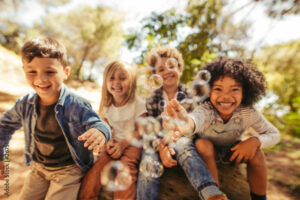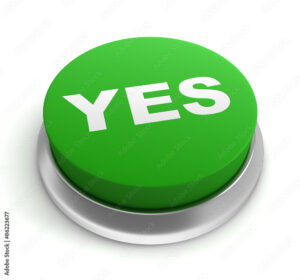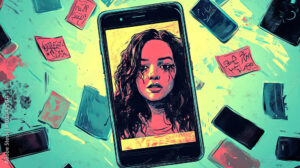That’s the question that came in my mind as the debate began. It wasn’t just a class discussion anymore—it felt deeply personal. As a teacher, and someone who grew up in a slower, simpler time, I often ask myself: Is social media actually ruining childhood?
Looking Back to my own Childhood Days- 
I still remember how my childhood felt—mud on my hands, neighborhood games, and evening chats on the terrace. There were no “likes,” no filters, and no pressure to keep up online. But today, it’s all different. I see kids glued to screens during recess, worried about Snapchat streaks and Instagram comments.
So, when I heard the debate statement — “Social media is ruining childhood” — I obviously nodded in agreement.  , it is!
, it is!
What the first team brought in…..
The agree team brought in some compelling and honestly emotional material.
They brought in light a very powerful video by Matthew McConaughey’s video, where he said:
“Kids are growing up asking ‘What do you think of me?’ instead of ‘Who do I want to be?’”
That line lingered with me. I’ve taught children who seemed confident face-to-face but broke down after a mean TikTok comment. One girl I remember—let’s call her Riya—stopped participating in class after online bullying, despite being a top performer.

The Surgeon General’s advisory on Social Media and Youth Mental Health convincingly supports the agree side of the debate. It showed how excessive social media use affects sleep, attention span, and mental health, especially for young teens. It made me wonder—how many of my students come to class carrying invisible digital wounds?
Even a resource that add to this perspective I would like to add is TEDx Talk by Allison Graham, titled “How Social Media Makes Us Unsocial.” In just 5 minutes, she captures how social media might be connecting us digitally while disconnecting us emotionally and socially—especially among younger users. Watching it reminded me of how often I’ve seen students sitting together, but each lost in their own online world, missing real connection right in front of them.
But Then Came the Flip Side…
I was so very convinced by the arguments by team agreeing on the ruining effects of social media but as the disagree team started with point forth their points I saw a little shift in my perspective. Even as proposed by the team, I skimmed through Jonathan Haidt’s article in Wired:
“It’s too easy to blame the platform—it’s more complex than that.”
It’s true. I’ve seen kids use social media for good, too. One of my students created a short video about kindness and posted it on Instagram. It got shared widely, and soon, other students began replicating her small acts of kindness.
Video from the BBC called Is Social Media Good For You? yet convinces more. I does not sugarcoat the risks, but it also shows how young people are using platforms to fight injustice, raise awareness, and build community.
Here comes the real question- So… Is Childhood Ruined?
Well, listening through both sides of the arguments, I don’t think it is ruined.
It’s just different.
And we are all still figuring out how to raise kids in this new, connected world.
What worries me most isn’t just the technology—it’s the lack of guidance. Many kids are left to navigate the digital world on their own, without understanding digital boundaries, privacy, or emotional resilience.
As a teacher, I try to hold mini “tech check-in” circles with students. We talk about what they see online, what bothers them, and what makes them feel proud. This way I try to help them use it with purpose.
So what’s my final take on the debate-
If you ask me, Social media is not the villain.
But it can become one if we leave kids alone with it.
So, no—I don’t think it’s “ruining” childhood. But it’s reshaping it in ways we’re just beginning to understand. Our job as educators, parents, and mentors is to walk alongside kids, not behind or ahead of them.
Here I end my blog post and I would like to here of what my friends have to say on this…. Drop in your comments….. Till then singing out
References:
BBC My World. (2020). Is social media good for you? [Video]. YouTube. https://www.youtube.com/watch?v=DnKpnojwz2M
Graham, A. (2017, May 30). How social media makes us unsocial [Video]. TEDx Talks. https://www.youube.com/watch?v=d5GecYjy9-Q
Haidt, J. (2024). The great rewiring: Is social media really behind an epidemic of teenage mental illness? Wired. https://www.wired.com/story/rewiring-teenage-mental-health/
McConaughey, M. (2024). Matthew McConaughey on fatherhood, mindfulness, and raising kids in the digital age [Video]. YouTube. https://www.youtube.com/watch?v=6lnCpWYWLr8&t=215s
U.S. Department of Health and Human Services. (2023). Social media and youth mental health: The U.S. Surgeon General’s advisory. https://www.hhs.gov/sites/default/files/sg-youth-mental-health-social-media-advisory.pdf
Hi Kritika,
Thanks so much for your thoughts on the debate! Like you, I was very much on the agree side that social media is ruining childhood until I started to look into the issue a little more deeply. I think you are right to say that the technology isn’t really the problem, it is the guidance (or lack of) from the adults in our children’s lives. As parents and educators, we need to do a better job of preparing kids for this digital world that we all live in. I love that you do tech check-ins with your students! What a great idea! That is a great way for you to show your students that what they see and interact with have a purpose and that they can decide what they look at or choose to ignore. Great work!!
Hi Kritika,
Thank you for your very honest and emotional resonating post. I feel as though you captured a lot of the feelings and tensions many of us feel. We long for the simplicity of our childhood, but also want to help the next generation navigate the complex nature of theirs. I also deeply appreciate your references, especially Matthew McConaughey’s quote. I have read his book “Greenlights,” and he is such a wise, philosophical thinker with many insights to share. You offered a very balanced perspective. It’s easy to fall into an “all or nothing” mindset when it comes to social media, but your shift to acknowledge the positives adds more depth to your post. I think the tech check-ins you do with your class are incredibly important and not something I have done yet in my teaching practice. What are some trends or things that you have noticed when doing these with your students?
Hi Kritika,
Thank you for such a moving and personal post. Your line—“Social media is not the villain. But it can become one if we leave kids alone with it” was great. That perfectly sums up the challenge we explored in our presentation too.
Mike and I argued that childhood is being reshaped by platforms engineered for addiction and comparison. Apps like TikTok and Instagram often hijack attention and self-worth before kids have the emotional tools to cope. But like you, I also appreciated the nuance brought by the “disagree” team. Social media isn’t all bad—it can foster creativity, activism, and connection when used with guidance and purpose.
Your example of “tech check-ins” with students is such a powerful strategy. I’ve tried similar approaches in my Health Ed class, helping students reflect critically on their digital habits. What we’ve found again and again is this: kids don’t need fear-based messaging—they need support, boundaries, and the chance to grow offline first.
Thanks again for your insight and honesty. You beautifully captured what so many of us are feeling as we navigate this ever-changing space alongside our students.
– Kaela
Hi Kritika,
Like others have mentioned, I also really like the quote by Matthew McConaughey: “Kids are growing up asking ‘What do you think of me?’ instead of ‘Who do I want to be?’” I also find it concerning how children will go to great lengths to obtain likes on social media. It seems like the only way they feel like they are enough is by the number of friends they have and the number of likes on their posts. Bullying has always been around, but the difference now is that it follows children home and they can’t escape it.
I also really like your statement that childhood is not ruined, it is just different. I believe, like every generation, we have to figure out how to parent in an ever-changing world. It is great that you do tech check-ins with your students; they are lucky to have such a supportive adult in their life. Thank you for sharing!
Jenna
Great post, Kritika! Thank you for sharing your insights on whether social media is ruining childhood. While I do believe social media can have a negative impact on children, I appreciated hearing the opposing side’s perspective—and like you, my opinion shifted slightly, though not entirely.
Two points from your post really resonated with me: first- it is easy to blame the platform, but the issue is far more complex; and second- social media is not the villain—unless we leave kids to figure it out on their own. Today’s children are digital learners, growing up in a technology-saturated world, and it is our responsibility to walk alongside them. We need to teach them about responsible digital use, online safety, and how to protect themselves in online spaces.
If we treat technology as the enemy and avoid difficult conversations, we risk making it even more appealing and mysterious to kids. I really commend you on your idea of doing regular “tech check-ins”—what a practical and thoughtful way to stay connected with your students and open that line of communication.
As you mentioned, we are all trying to figure out how to raise and teach children in this digital world, and the more we talk about it, the more we can support one another and our students.
Thank you for sharing!
The interview with Matthew MaConaughey really stuck with me as well. When he spoke about how some of us wake up thinking about what we could post today rather than living life and then thinking it might be fun to share – that really stuck with me. Like we are living in reverse, living for how others will react to us rather than living intentionally for ourselves. If I can teach my own children one thing, I want to teach them to live whole-heartedly for themselves and not for how they think others will perceive them.
Hi Kritika,
I appreciate your reflection on how children’s lives are evolving during the internet age. You touch on the emotional dilemma many teachers face between nostalgically wishing for a simpler, offline childhood and the reality that our hyper-connected generation does indeed exist. The Matthew McConaughey quote, “kids are growing up asking ‘what do you think of me?’ instead of who do I want to be? was especially powerful and exactly expressed the identity crisis that certain children w experience because of constant verification online.
Your anecdote regarding Riya highlights the real emotional toll social media takes on students, placing in relief the “invisible digital wounds” that they carry to class with them. Your post is not one sided as you shared not just for the “social media is ruining childhood’ argument but leaned in a little and shared the counterargument. Quoting Johnathan Haidt and putting up the BBC video provided the necessary depth.
Your concluding wisdom that childhood isn’t r
Hi Kritika,
I appreciate your reflection on how children’s lives are evolving during the internet age. You touch on the emotional dilemma many teachers face between nostalgically wishing for a simpler, offline childhood and the reality that our hyper-connected generation does indeed exist. The Matthew McConaughey quote, “kids are growing up asking ‘what do you think of me?’ instead of who do I want to be? was especially powerful and exactly expressed the identity crisis that certain children w experience because of constant verification online.
Your anecdote regarding Riya highlights the real emotional toll social media takes on students, placing in relief the “invisible digital wounds” that they carry to class with them. Your post is not one sided as you shared not just for the “social media is ruining childhood’ argument but leaned in a little and shared the counterargument. Quoting Johnathan Haidt and putting up the BBC video provided the necessary depth.
Your concluding wisdom Your concluding wisdom that childhood isn’t ruined, but reimagined, is both hopeful and mature. Most importantly, your invitation to adults to accompany kids through their online lives emphasizes the strength of guidance over dread. This isn’t a blog post about being a perfect parent or in any way judgmental. It’s a gentle challenge to all of us to stay closer to home, be better educated, and more supportive in this new era of childhood